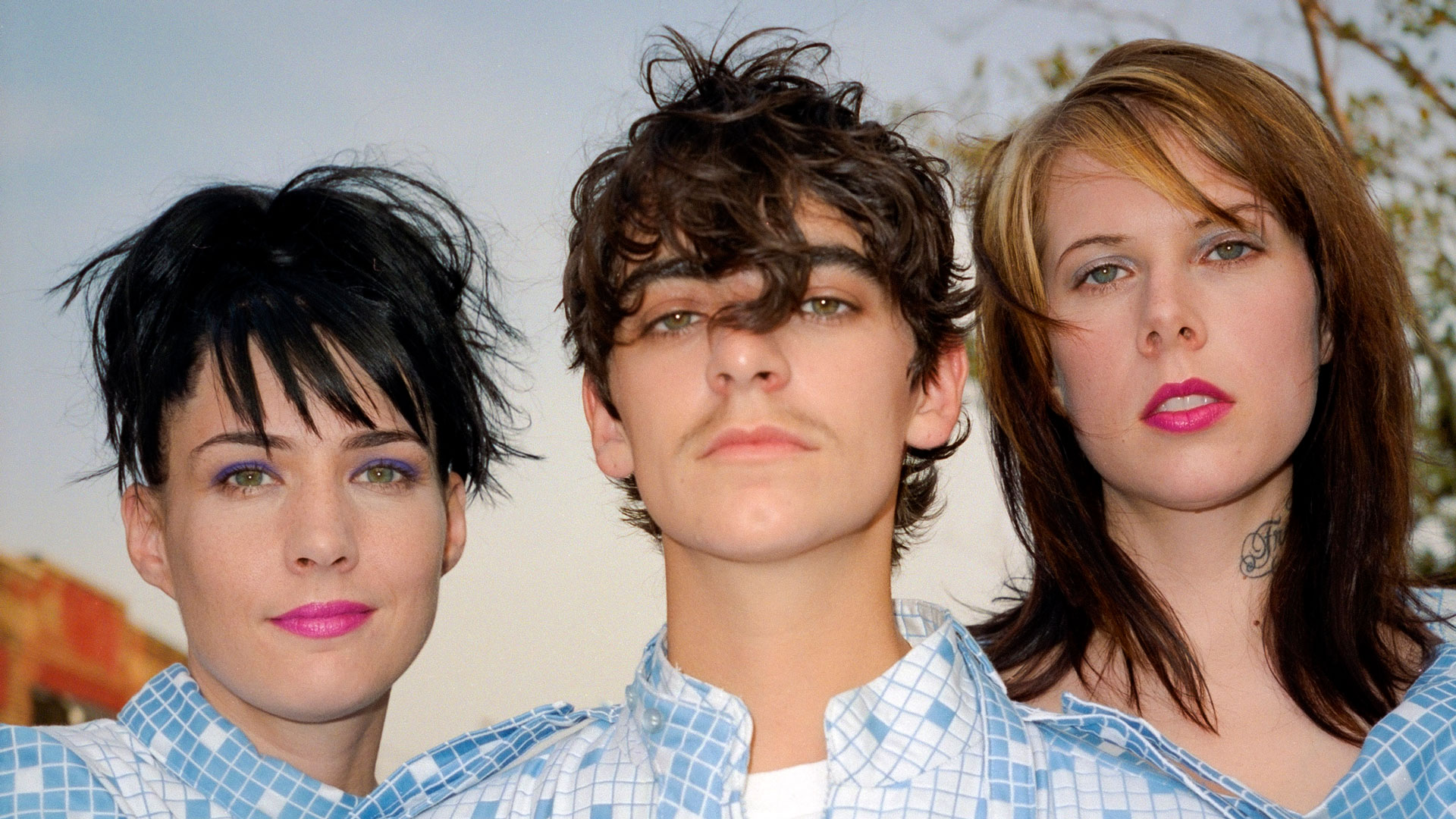“One step forward, five steps back,” sings Kathleen Hanna on Le Tigre’s F.Y.R. It is the eternal lament of the progressive. The initials in the song’s title allude to an argument in seminal feminist text The Dialectic of Sex by Shulamith Firestone, in which the radical activist describes the ‘fifty years of ridicule’ American women had to bear between getting the right to vote in 1920 and the book’s publication in 1970. Three decades later, in 2001, Hanna’s electroclash band was once again facing the fact that every time we get a win, reactionary forces are right there with the backlash.
Here in 2023, on a video call to Big Issue to mark their reunion, Kathleen Hanna is reflecting, with bandmates Johanna Fateman and JD Samson, on how painfully on point that sentiment remains. With its references to equal pay, equal marriage, nationalised health care and reparations for Black people, F.Y.R. rails against many of the Fox News talking points / Republican party wedge issues that still dominate US politics today. Like much of Le Tigre’s work, its finger remains on the pulse – and like all their music, it’s a total bop.
“It’s actually kind of terrifying how right on the lyrics are, yeah,” says Hanna.
“I think people have been yearning for this dance-infected, kind of protest vibe. You know what I mean?” Samson agrees. “It’s been exciting for us to come back and be in that space, sweating with people who are thinking and people who are political and feminists. We’re really excited to bring the lyrics to the dance floor again. Personally, I’ve been missing that. And I know a lot of people have too.”
Coming out of New York in 1998, Le Tigre formed after the dissolution of Hanna’s former band, riot grrrl innovators Bikini Kill. Le Tigre were louder, brighter, more playful, more fun – and more political – than the rest of the studiously cool NYC crew. “I feel like we’ve proved as a band that just providing a cultural space that’s different than the mainstream landscape is important and does make changes,” says Hanna. After three albums of danceable revolution, the band were facing burnout and called it quits in 2007. They mostly been on hiatus since then – bar a single in support of Hillary Clinton’s presidential campaign, and one-off collaborations with Pussy Riot and Christina Aguilera.
But as Firestone knew in the 70s, a feminist’s work is never done. Almost 20 years on from the last Le Tigre album, their songs have been going viral among young women on TikTok (“I love seeing what people do,” says Fateman, “I’m like, Oh, you’re listening to Deceptacon and making candles? Cool”) and the band have once again taken up microphone, guitar, synth and drum machine to rally the troops. In June, they arrive in the UK for several hotly-anticipated live shows, following on from a triumphant return to the stage at California’s This Ain’t No Picnic Festival last August.










